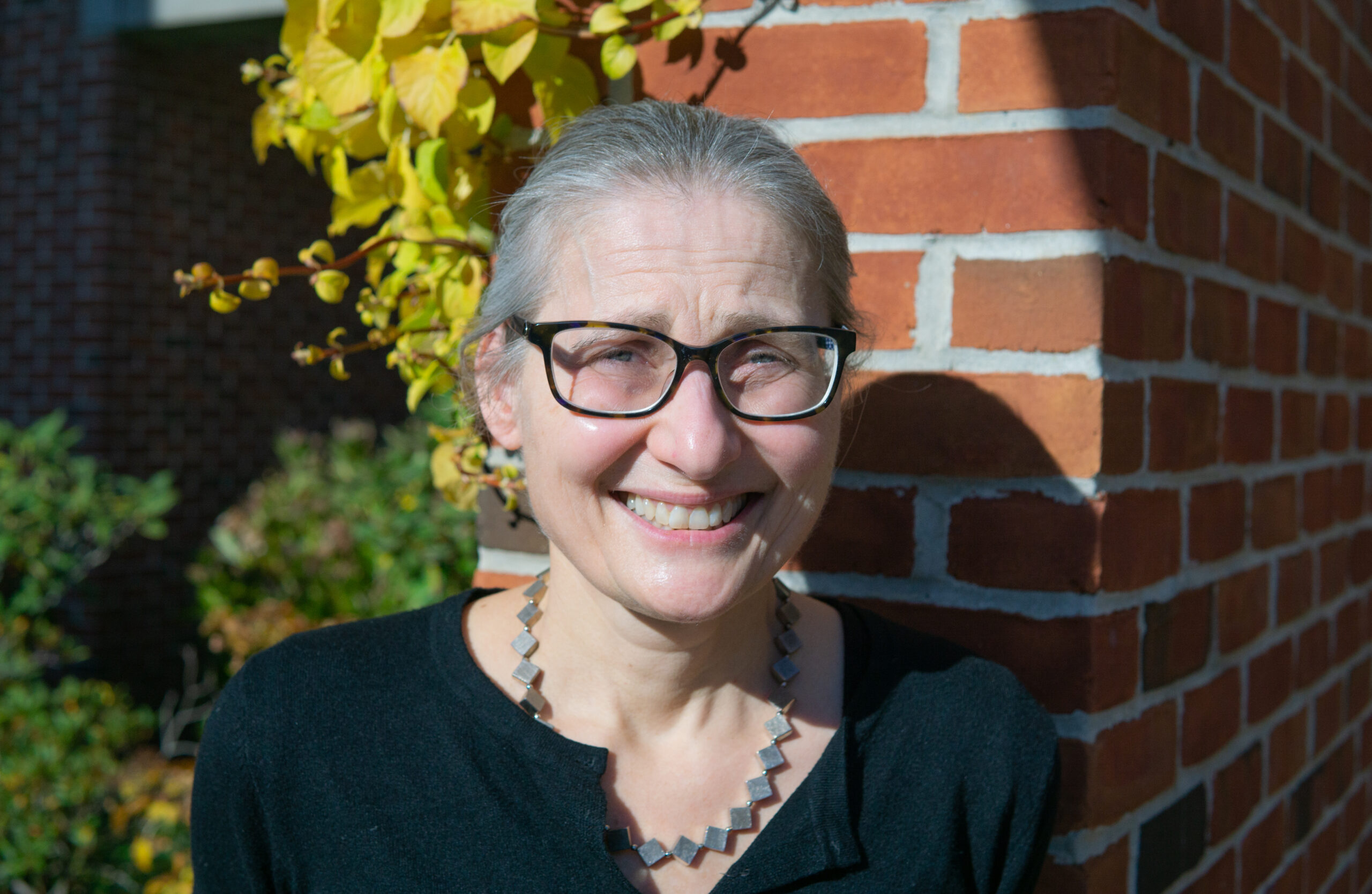Catherine DeCesare talks about her project entitled “Bermuda Prize,” at the Multicultural Student Services Center. PHOTO CREDIT: James Singer
The sixth voyage of the Providence-based ship John Jay showed an important cross section of politics, economy and culture in the early 1800s, and 200 years later, was the recent focus of the University of Rhode Island’s Brown Bag Series.
Catherine DeCesare, an assistant professor of history at URI, dove into Rhode Island’s nautical history in her project entitled “Bermuda Prize,” presenting her groundbreaking historical research as part of the series hosted by the department for humanities.
The John Jay, a trading ship owned by the Brown and Ives Trading Company, departed Providence into politically tumultuous seas, carrying millions of dollars worth of cargo to trade.
“Before the American Revolution, Far East trade was a monopoly of the British East India Company,” DeCesare said. “Colonial merchants were not allowed to trade directly with the Far East. After the American Revolution, the political dynamics changed and the trade was opened to U.S. shipping, and Rhode Island merchants stopped up to this challenge right away.”
But this was not done without significant risk and challenges presented by the British Navy. The British Navy, being the most powerful in the world at the time, patrolled the seas and many major trade ports, doing routine checks of any neutral vessel they came across, according to DeCesare. The John Jay was stopped by the British Navy on its outbound voyage, though these earlier stops didn’t cause too many issues.
The initial journey, departing from Providence in 1804 for Amsterdam, then Batavia in the Dutch East Indies, initially ran into no political or legal controversies, but that didn’t mean it was smooth sailing.
“En route across the North Atlantic, to the North Sea, the Jay sailed into a major storm, seriously damaging her,” DeCesare said. “She made her way, kind of limped actually, to the port of Great Yarmouth in England, and there the ship was repaired and then set sail for Amsterdam in the Netherlands. She arrived in Amsterdam late in the season and was iced in for the duration of the winter.”
The journey to Batavia the following spring went with no issues, although the journey back quickly became a more chaotic and controversial endeavor.
“The British Navy were increasingly concerned about Napoleon’s string of continental victories, and crowning himself emperor, so they stepped up their efforts to control the seas and the trade routes especially,” DeCesare said. “This is especially after the battle of Trafalgar in late October 1805. From the British Navy’s perspective, it was all-out war, to defeat Napoleon. And to do so, it was necessary to stop and search all neutral vessels.”
The intensity and tension between the crew of the John Jay and the British Naval vessels increased with each successive stop. It wasn’t until the fourth stop that the British decided to actually capture the John Jay when the ship was only a matter of days from returning back home.
The ship was taken to the British colony of Bermuda, to be put on trial by the court. A legal battle ensued for several months, according to DeCesare, with the ship slowly deteriorating in the harbor. It made national headlines in the U.S., contributing to the rising tensions between the two nations, which would culminate some years later in the War of 1812. After many months, and thousands of dollars spent, the John Jay was finally returned to the US in 1806, where it would be repaired to set sail once more.
DeCesare’s research, so far, has been conducted in both London and Bermuda. At the National Archives in London, she was given access to the original legal files from the British High Court of Justice, which detailed in-depth the court case and legal decisions concerning the John Jay. She also went to the Bermuda Archives, where the ship was brought and where the lower courts, which also worked on the case, were located.
The audience had the chance to ask questions at multiple points throughout the presentation, including the Administrative Assistant for the Center of the Humanities Laura Stiffler who commented on the presentation.
“I love the travel and the research aspect of it and uncovering the story that has been buried for hundreds of years, and I think it’s really neat that it has such a home connection to Providence and Rhode Island,” Stiffler said. “I know the Center of Humanities helped fund the Bermuda trip as part of a grant, so it’s cool to see these things come to fruition.”
The Brown Bag Series, typically held on one Thursday each month at 12:30 p.m., is made available both in person at the Hardge Forum in the Multicultural Student Services Center, and over Zoom, which anyone can sign up for through the URI Center for Humanities website under the events tab.

